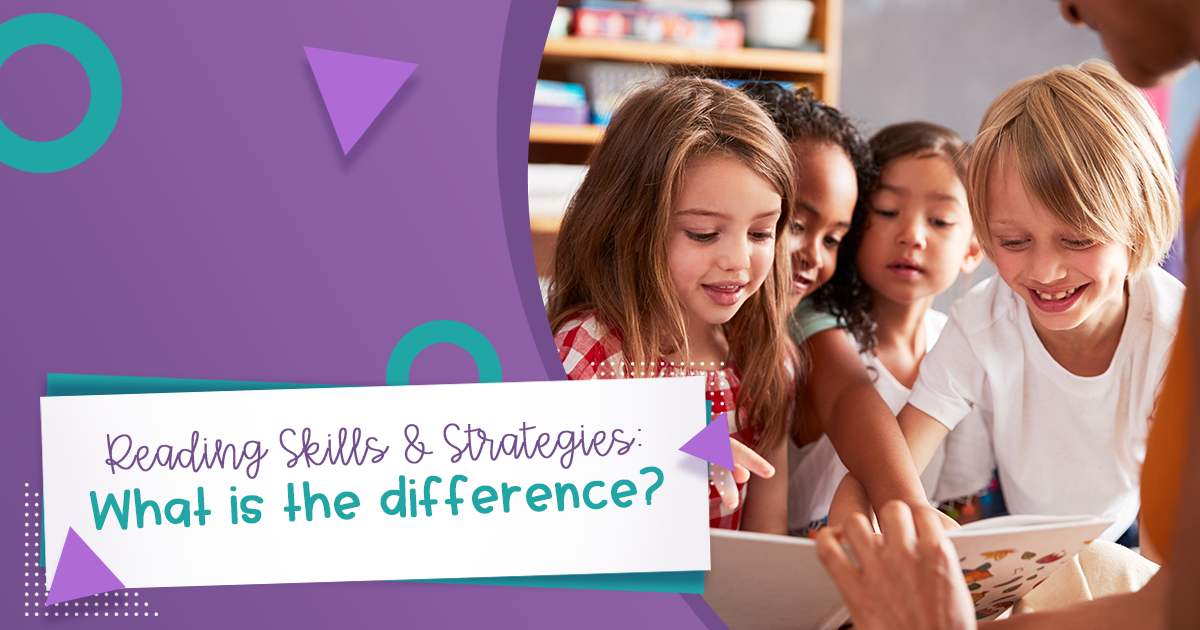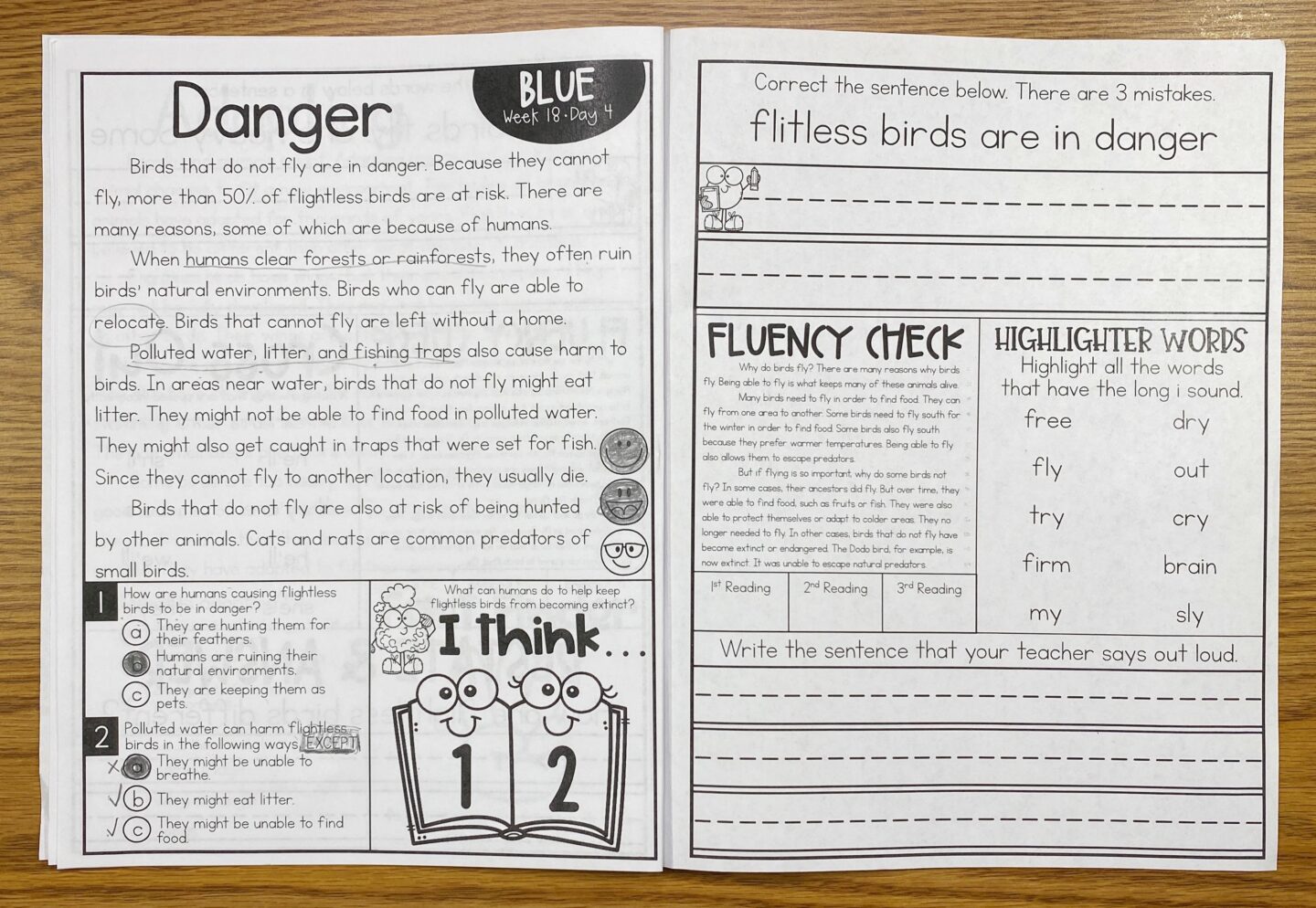
Reading skills & strategies are two words that are often used interchangeably. And I’ll admit, I’ve totally used the two words incorrectly on more than one occasion.
Every textbook company, every book that you read, every list that you may have Googled will have a different list of reading skills and strategies. I kept thinking, “Why is there not a big momma list of the skills and strategies that you need to know to be able to be a good reader?”
Well, here’s the answer: Every reader and every text requires different skills and strategies.

What are Reading Strategies?
Reading Strategies are actions a reader should do to figure out the text or to remember a text. We use reading strategies for texts that are difficult for us.
Over time, strategies become skills. Think back to when you first began reading. When you didn’t know a word automatically, what did you do? You probably tried to stretch it out. That was a strategy for figuring out an unknown word. In time, you memorized words and no longer relied so heavily on that strategy.
What are Reading Skills?
Reading skills are things that you are proficient in and can do automatically. People have all kinds of skills, like playing an instrument, running, or cooking. Overtime, you can become skilled in a particular area.
When you first begin one of these activities, you aren’t an expert. You learn and grow. Reading skills work in the same way. Using strategies, we can later become skilled readers.
Clear as Mud, Right?
Do you see why the language between skills and strategies can be confusing? After learning the true difference, I see why some textbooks might call something a skill versus a strategy. Depending on the grade level of the curriculum, it could also cause the terminology to be difference.
The most important thing is to model and practice various strategies. For many of our struggling readers, they need help knowing WHAT to do before, during, or after reading. We can help!
